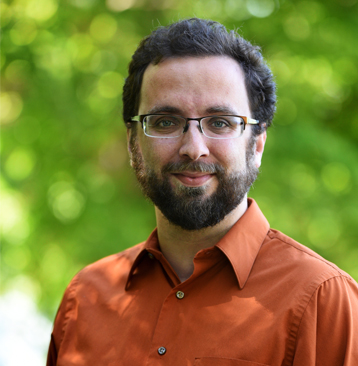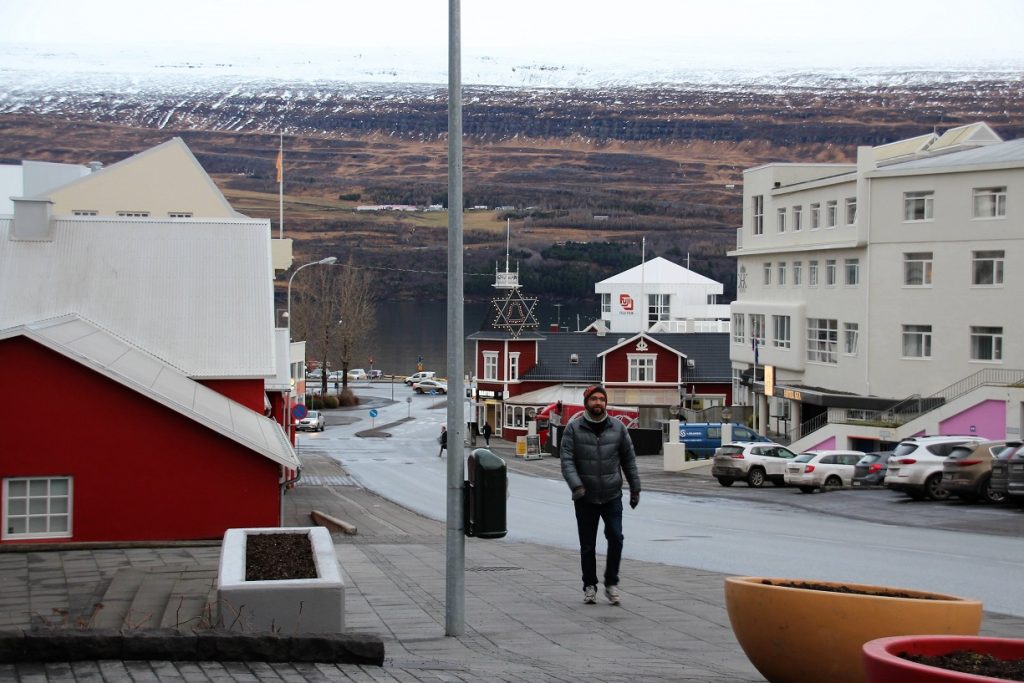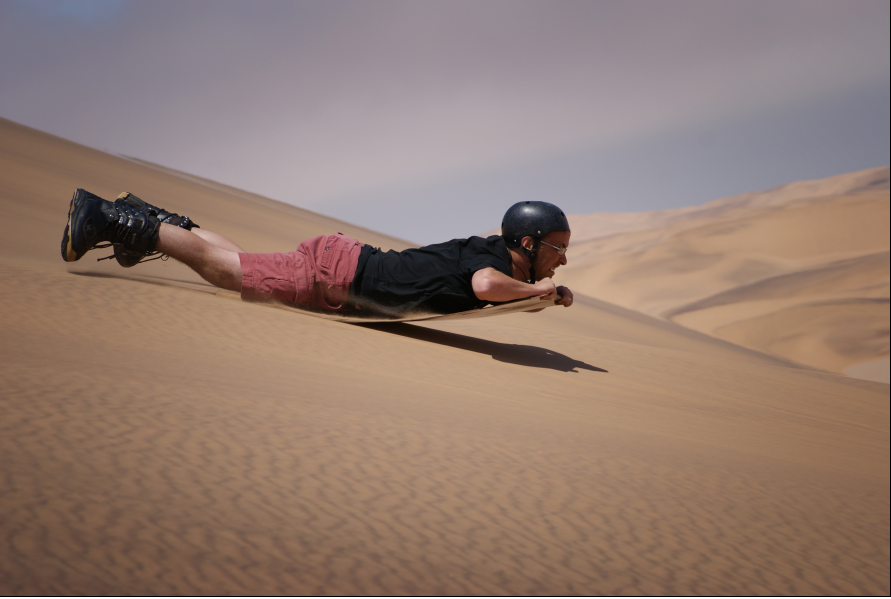SIT’s Ian Hefele tagged for NAFSA role
December 21st, 2021 | Alumni, SIT Graduate Institute, SIT Study Abroad

Starting January 1, 2022, SIT Admissions Counselor Ian Hefele gets a long addendum to his title—and no shortage of extra responsibilities to go with it.
Hefele—who handles admissions for SIT Study Abroad programs in the Middle East and parts of Africa—was named to a two-year term as World-at-Large Country Coordinator for the Consular Affairs Liaison Subcommittee at NAFSA.
I think people will be more deliberate and considerate when they make choices to go overseas.
With 10,000 members, NAFSA bills itself as the world's largest professional association dedicated to international education. On the macro level, NAFSA works to generate support for international education and exchange in higher education. On the micro level, NAFSA volunteers like Hefele help member organizations with arcane and complicated questions like student visas.
We chatted with Hefele to hear more about his new role.
What is the role of NAFSA’s Consular Affairs Liaison Subcommittee, and particularly the country coordinator for the world at large?
I’ve been on the subcommittee since January 2020, so we had about two months of business as usual and then everything changed. This subcommittee is a group of people who serve as a resource to the education abroad community about the ever-changing visa rules around the world. France, the UK, Italy and Spain are the big four divisions because the vast majority of study abroad students go to those countries. The world at large covers the entire world except for those four countries.
Each subcommittee has five or six people who serve as the point people for various visa processes to get Americans abroad. The country coordinator is the supervisor of those five or six people on the committee. We set up calls; do presentations at NAFSA national or regional conferences, and country coordinators try to stay on top of changing visa processes, which can be complicated. For example, South Africa one semester changed its rules 15 times as to what was required of a U.S. passport holder to study there.
Cases like this are a window on how international relations affects the international abroad field.
It must be especially complicated during COVID.
It definitely kept me busy through 2020-21. And now that travel is picking up again, I would say we’re get six cases each month. Also, because SIT has such a broad portfolio of programs, we tend to figure out these issues quickly, so that’s helpful. For example, right now, we have an Ecuadorian passport holder on an F1 visa wanting to go on our Netherlands program, which is doing an excursion to Serbia and Bosnia. What’s interesting is that cases like this are a window on how international relations affects the international abroad field. This passport holder has a valid visa to study in the U.S., so both Serbia and Bosnia recognize that U.S. visa to allow entry into their countries.

You’re a busy professional and an active local community member with a family. What motivates you to take on even more volunteer work?
Most people don’t want to deal with visas. In college I studied abroad in the UK, Germany, Costa Rica, Guatemala and Australia. I never had anyone helping me, so I had to do complicated visas myself. So, the legalese and bureaucratic language of visas has always kind of made sense to me. I also worked in the consular section of the U.S. Embassy in Windhoek for six months.
I like that I get to interact with people from around the world. In my phone I have contacts on four continents. When we were finalizing our children’s adoption, we had people from three continents and five countries who came to the virtual ceremony.

What drew you to international education in the first place?
I was already in the field before I could name it. During my Peace Corps service in Mozambique, I remember waiting for a bus in maybe 2006 or so, talking to my site mate and saying, ‘I really like living abroad and teaching and running community events. I wish there was a field called international education.’ Obviously, there was but I didn’t know it at the time.
I was already in the field before I could name it.
Among many challenges, the world is grappling with COVID and climate change. What do you think that will mean for the international education sector?
I think we’ll see change for the positive. I think people will be more deliberate and considerate when they make choices to go overseas. They won’t just hop on a plane to go somewhere. I also take a historical view: I have grandparents who contracted the Spanish Flu. They didn’t talk about it much because it was terrifying, but they talked about how, after that pandemic, travel picked up and became more available to the general population. I think historically when we are confined or restricted for as long as we have been, human beings tend to react with a great curiosity and desire to get out into the world.
